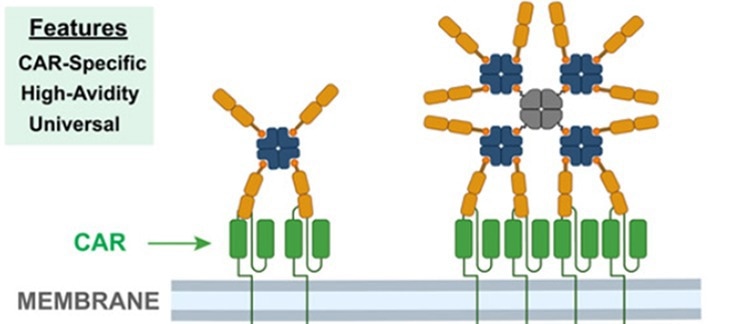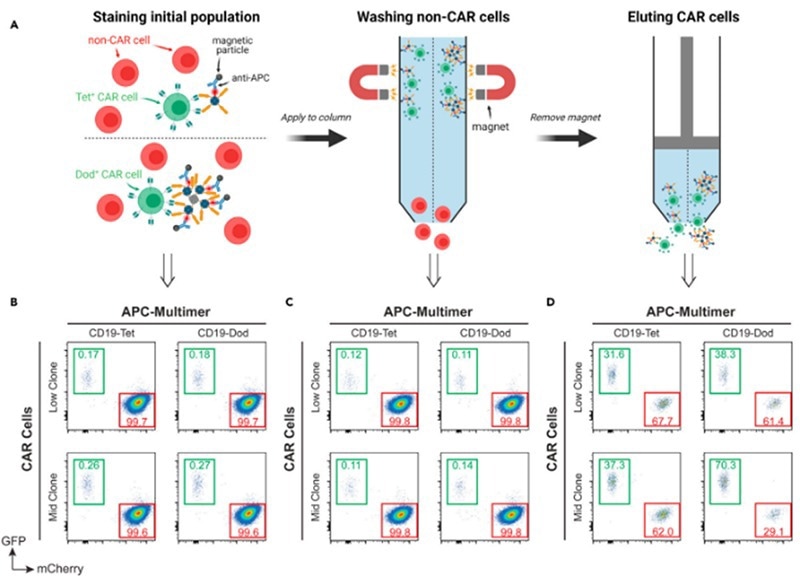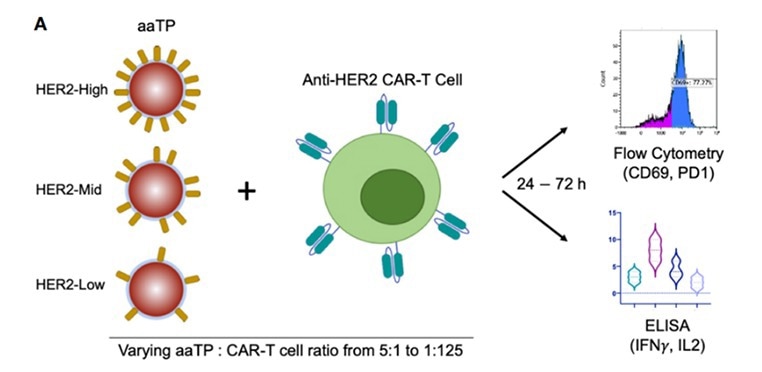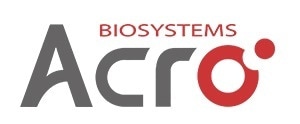The ability to engineer immune cells is at the leading edge of cancer treatment. Chimeric Antigen Receptor T-cell (CAR-T) therapy has effectively treated relapsed or refractory hematological malignancies.
Because CAR cells are 'living drugs,' manufacturing processes are complicated and require strict control of standards. CAR-T's continued growth as a promising therapeutic has created an immediate requirement for CAR cell-related reagents and tools that provide improved scalability and workflow automation.
An example is using antigen multimers because they are precise and accurate in CAR cell activation, detection, expansion, enrichment, and ex vivo analysis. Pre-coupled magnetic multimers that target specific antigens display benefits in various applications.

Figure 1. Schematic Diagram of Antigen Tetramer and Antigen Pre-Coupled Magnetic beads based on the SA-Biotin system. Image Credit: Matter. 2021;4(12):3917-3940
Emerging application of target-specific pre-coupled magnetic beads
CAR-T cell activation and expansion
The stimulation and growth of T cells is essential in producing CAR-T cell therapies. Traditional methods use anti-CD3/CD28 T cell activation beads or anti-CD3/CD28 antibodies. These stimulation agents consistently activate all T cells throughout the growth process after lentiviral transduction. This non-specific activation reduces the percentage of therapeutically potent CAR-T cells post-growth. This results in poor outcomes and low efficacies after patient infusion.
New research has focused on different stimulation methods utilizing CD19 tetramers or CD19 dodecamers coupled to magnetic beads. Incubation of anti-CD19 CAR cells with multimeric structures at physiological temperature (37 °C) causes significant upregulation of T cell stimulation markers CD69 and CD25.
The concentration-dependent reaction specifies that increased concentrations of multimers correspond with increased levels of activated CD69+ and CD25+ cells and with the elevated production of IL-2, a vital cytokine in T-cell stimulation. Comparative analysis indicated that antigen-coupled magnetic beads outmatched antigen tetramers in effectiveness. This indicates that magnetic bead-coupled antigen multimers increase potency in stimulating CAR-T cells because of their exceptional binding abilities.

Figure 2. Activation of CAR-T cell by pre-couple target antigens with magnetic beads. Image Credit: Matter. 2021;4(12):3917-3940.
CAR-T cell enrichment
Enhancing CAR cells is a routine strategy in developing cell therapy drugs, specifically with lower CAR expression (low to intermediate abundance). CAR-T cell enrichment using specific antigen-coupled magnetic beads is a procedure with potential.
Research shows that between 35% and 55% of low-clone and mid-clone CAR cells remain on the column established by the flow-through rate of CAR cells following stimulation.
After negative selection, the ratio of CAR cells eluted from the column exceeds the original cell population by over 100-fold. There is a considerable increase in fluorescence intensity in the eluted cells compared to the original stained population.
The magnetic bead-mediated dodecamers exhibited exceptional cell enrichment effectiveness compared to tetramers, with the increased fluorescence created by dodecamer staining the probable reason. These findings recognize the possibilities of multimeric-specific target beads for enhancing rare CAR-T cells demonstrating low CAR expression.

Using specific antigen-coupled magnetic beads for CAR-T cell enrichment. Image Credit: Matter. 2021;4(12):3917-3940.
CAR-T cell ex vivo analysis
Comprehensive ex vivo examination of CAR-T cells for every step of production, including T cell stimulation, growth, and cytokine release, is essential in establishing vigorous testing criteria for product release.
Most ex vivo assays require co-cultured CAR-T cells with cancer cell lines showing the target antigen. Utilizing cancer cell lines has a major limitation: antigen density demonstrated by these cells is often diversified, unstable, and challenging to control. The stimulation of CAR-T cells depends on the antigen level demonstrated on the tumor cell surfaces, creating difficulties in establishing standardized analytical methods.
The number of target cells changes throughout the evaluation (proliferation or cell death), increasing the difficulty in accurately determining the CAR-T cell function based on antigen dose (e.g., cytokine secretion, Effector: Target ratio). Furthermore, every cell line model has a specific genetic and epigenetic condition that could introduce unknown cell line-specific factors hindering standardization of research methods.
Researchers are responding to these challenges by using targeted, specific pre-coupled magnetic beads. This provides a clear benefit over conventional cell lines with accurate modulation of antigen density on magnetic bead surfaces.
After co-incubation with CAR-T cells, analytical methods like flow cytometry and ELISA allow the quantification of key factors, including CAR-T cell antigen specificity and dose-dependent activation.
Bypassing the restrictions presented by traditional research has led to an interest in alternative methods for developing refined and standardized ex vivo assays for CAR-T cells.
Increased research control, lower costs, and accurate quantification are innovative strategies that promise improved precision characterization and assessment of CAR cell therapies throughout preclinical development and before the clinical stage.

Using specific antigen-coupled magnetic beads for CAR-T cell enrichment. Image Credit: Matter. 2021;4(12):3917-3940
ActiveMax® is a specialized brand developed to expedite cell activation, culture, and other applications essential for immune cell therapy research and preclinical process development.
A comprehensive selection of Target-specific Activation Beads, GMP-grade Anti-CD3/CD28 Antibody-coupled Magnetic Beads, and sterile cell culture-grade Streptavidin-coupled Magnetic Beads are available, providing customers with flexibility in target conjugation.
Produced with strict quality standards by ACROBiosystems, ActiveMax® products are guaranteed animal-origin-free, sterile, mycoplasma-free, and ultra-low in endotoxins. These products fulfill all customer requirements, allowing for a seamless transition from immune cell therapy-related research to preclinical development.
About ACROBiosystems
ACROBiosystems is a cornerstone enterprise of the pharmaceutical and biotechnology industries. Their mission is to help overcome challenges with innovative tools and solutions from discovery to the clinic. They supply life science tools designed to be used in discovery research and scalable to the clinical phase and beyond. By consistently adapting to new regulatory challenges and guidelines, ACROBiosystems delivers solutions, whether it comes through recombinant proteins, antibodies, assay kits, GMP-grade reagents, or custom services. ACROBiosystems empower scientists and engineers dedicated towards innovation to simplify and accelerate the development of new, better, and more affordable medicine.
Sponsored Content Policy: News-Medical.net publishes articles and related content that may be derived from sources where we have existing commercial relationships, provided such content adds value to the core editorial ethos of News-Medical.Net which is to educate and inform site visitors interested in medical research, science, medical devices and treatments.